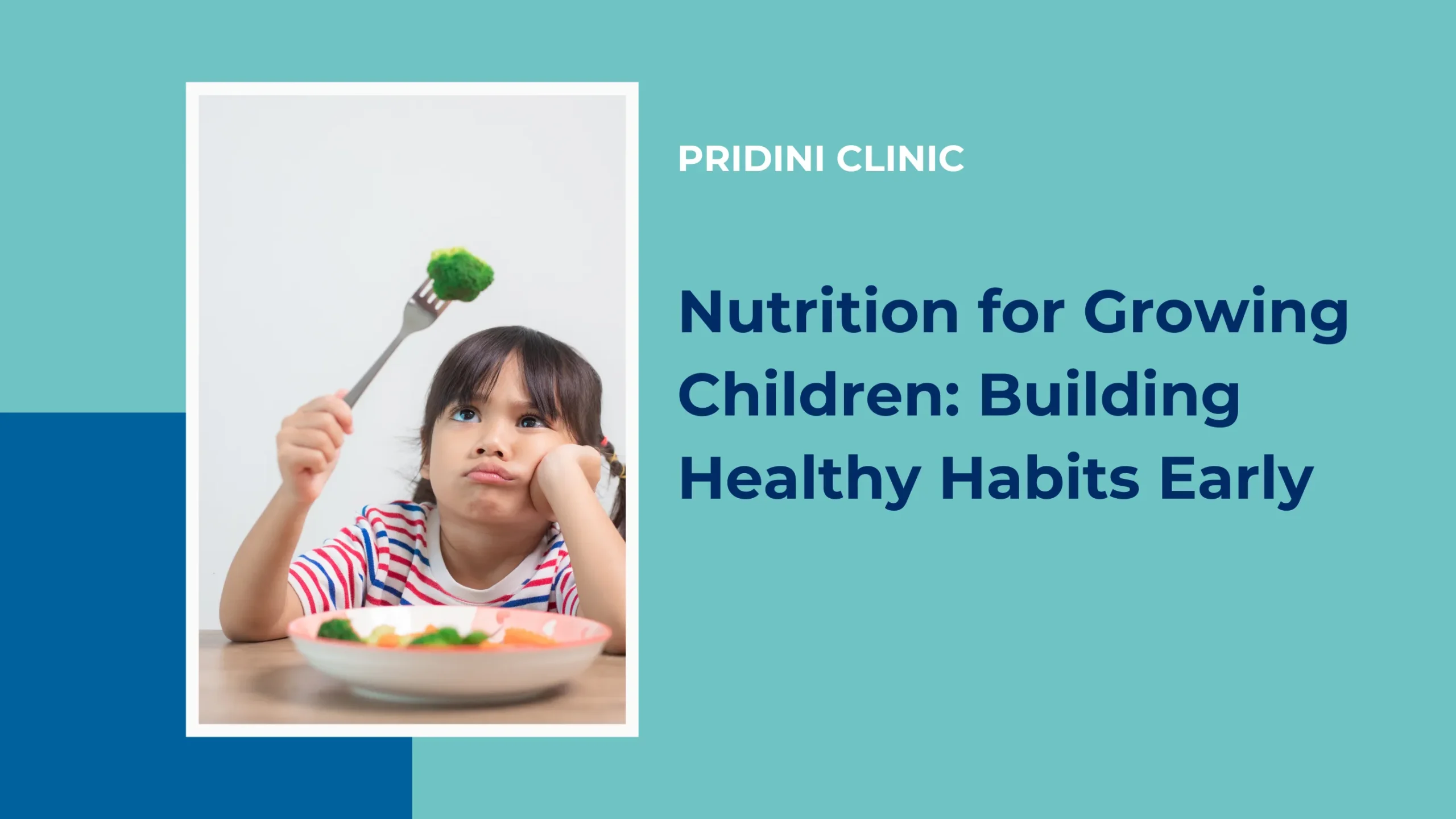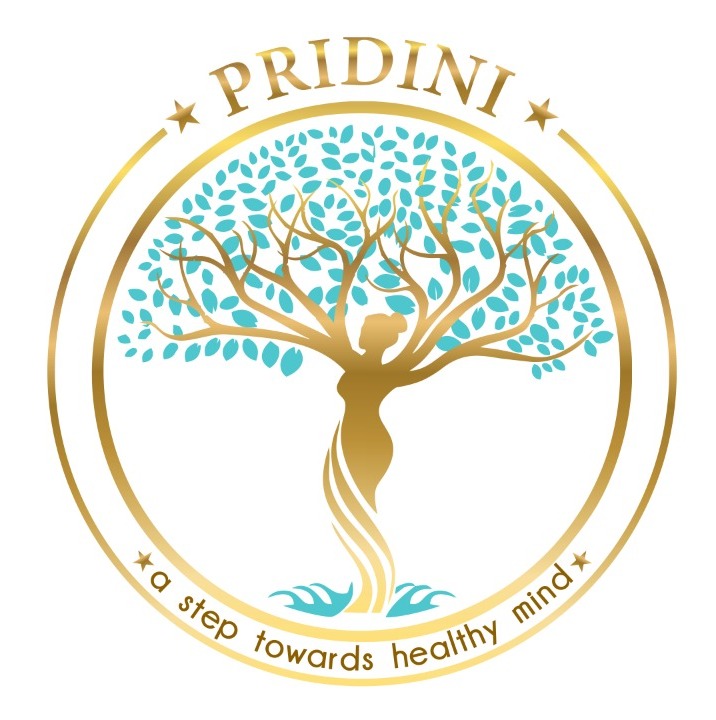Good nutrition is the cornerstone of a child’s development, impacting their physical growth, cognitive function, and overall well-being. As a parent, fostering healthy eating habits in your children from an early age sets the foundation for a lifetime of wellness. At Pridini Clinic, we understand the importance of balanced nutrition in childhood development and are here to guide you in nurturing your child’s nutritional health. This blog will cover the significance of balanced nutrition, key nutrients essential for growth, tips for encouraging healthy eating habits, common dietary challenges, the role of pediatricians, and how to create a healthy meal plan for your child.
The Importance of Balanced Nutrition in Childhood Development
Balanced nutrition during childhood is critical for supporting physical growth, brain development, and immune function. A diet rich in essential nutrients provides children with the energy to learn, play, and grow. Proper nutrition also helps prevent chronic diseases such as obesity, diabetes, and heart disease later in life.
Children’s bodies are constantly developing, and each growth stage requires different nutritional needs. A balanced diet that includes a variety of foods ensures that your child receives all the necessary vitamins and minerals to thrive. Moreover, establishing healthy eating habits early can lead to lifelong benefits, making it easier for your child to maintain a healthy lifestyle as they grow older.
Key Nutrients Your Child Needs for Healthy Growth
Several key nutrients are vital for healthy growth and development in children. Ensuring your child receives these nutrients is essential:
- Protein: Essential for building and repairing tissues, protein is crucial for muscle development and immune function. You can find these in lean meats, poultry, fish, eggs, beans, and dairy products.
- Calcium: Important for strong bones and teeth, calcium is primarily found in dairy products like milk, cheese, and yogurt, as well as in fortified plant-based milks and leafy green vegetables.
- Iron: Necessary for healthy blood and cognitive development, iron is found in red meat, poultry, beans, and fortified cereals.
- Vitamin D: Supports bone health and immune function. Sun exposure and fortified foods like milk and cereals are good sources of vitamin D.
- Fiber: Aids in digestion and helps prevent constipation. Fiber-rich foods include whole grains, fruits, vegetables, and legumes.
- Healthy Fats: Important for brain development, healthy fats can be found in avocados, nuts, seeds, and oily fish like salmon.
Tips for Encouraging Healthy Eating Habits
Encouraging healthy eating habits in children can be challenging, but it is essential for their long-term health. Here are some tips to help:
- Set a Positive Example: Children are more inclined to eat healthily when they observe their parents making nutritious choices. Make nutritious meals a family affair.
- Offer Variety: Introduce a wide range of foods to your child’s diet to help them develop a taste for different flavors and textures.
- Make Meals Fun: Get creative with food presentation, such as making fruit and vegetable shapes, to make meals more appealing.
- Get Your Child Involved: Allow your child to participate in meal preparation. This can boost their curiosity and willingness to try new foods.
- Limit Sugary and Processed Foods: Encourage whole, unprocessed foods over sugary snacks and drinks. Offer fruits as a sweet treat instead.
Overcoming Common Nutritional Challenges
Many parents face challenges when it comes to their child’s nutrition. Some common issues include:
- Picky Eating: Children may go through phases of picky eating. Continue to offer a variety of foods without pressuring them. Patience is key, and tastes often change over time.
- Food Allergies: Managing food allergies requires careful planning to ensure your child gets all the necessary nutrients. Work with a pediatrician or dietitian to develop an appropriate meal plan.
- Busy Schedules: A hectic lifestyle can make it difficult to prepare nutritious meals. Plan ahead by preparing healthy snacks and meals in advance to ensure your child eats well, even on busy days.
The Role of Pediatricians in Supporting Child Nutrition
Pediatricians play a crucial role in monitoring and supporting your child’s nutritional health. Regular check-ups allow pediatricians to assess your child’s growth and development, identify any potential nutritional deficiencies, and provide guidance on healthy eating practices.
Pediatricians can also help address specific concerns such as picky eating, weight management, and food allergies. By working closely with your child’s pediatrician, you can ensure that their nutritional needs are being met and that they are on the right track for healthy development.
How to Create a Healthy Meal Plan for Your Child
Creating a healthy meal plan for your child involves balancing the right nutrients while considering their preferences. Here’s how to get started:
- Breakfast: Focus on whole grains, protein, and fruit. Examples include oatmeal with berries and nuts or a scrambled egg with whole-grain toast and a piece of fruit.
- Lunch: Include lean protein, whole grains, and vegetables. A turkey and avocado wrap with carrot sticks or a quinoa salad with grilled chicken are good options.
- Snacks: Choose nutrient-dense snacks like yogurt with fruit, whole-grain crackers with cheese, or veggie sticks with hummus.
- Dinner: Combine protein, vegetables, and a healthy carbohydrate. Examples include grilled salmon with brown rice and steamed broccoli or a stir-fry with tofu, mixed vegetables, and quinoa.
- Hydration: Ensure your child stays hydrated by drinking plenty of water throughout the day. Reduce their intake of sugary drinks like sodas and juices.
At Pridini Clinic, we are dedicated to helping you build healthy nutritional habits for your child. If you have concerns about your child’s nutrition or need personalized guidance, don’t hesitate to contact us for expert advice and support.


